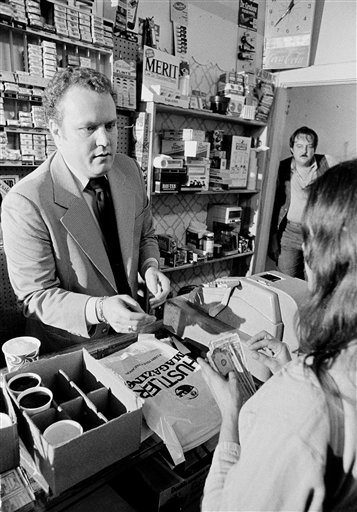In Rabeck v. New York, 391 U.S. 462 (1968), the Supreme Court reversed the obscenity conviction of a man charged with selling “girlie” magazines to minors because the court found part of the law unconstitutionally vague.
Rabeck dealt with First Amendment protection of sexually explicit material
Within a month’s time in 1968, the Court reversed New York’s high court in two cases and struck down the state’s law prohibiting the sale of “girlie” magazines to minors under 18 years of age. The cases presented the issue of whether sexually explicit material constituted protected expression under the First Amendment or unprotected obscenity.
Rabeck challenged the provision that made it a crime to sell magazines that “appeal to the lust” of minors and their “curiosity as to sex or to the anatomical differences between the sexes.” Rabeck, a per curiam opinion, drew on the companion case Ginsberg v. New York (1968) for its authority.
Rabeck, Ginsberg involved obscenity convictions of magazine sellers
In Ginsberg, the appellant, who operated a luncheonette, was convicted of selling lewd magazines to a 16-year-old boy whose mother told him to buy the magazines, so Ginsberg could be prosecuted under New York’s law.
New York’s statute declared that representations of female nudity were harmful to minors if the representations:
- Appealed predominantly to the prurient, shameful, or morbid interest of minors;
- Were patently offensive to prevailing standards in the adult community as a whole with respect to what was suitable material for minors; and
- Were utterly without redeeming social importance to minors.
Court upheld Ginsberg’s obscenity conviction; overturned Rabeck’s
The Court affirmed Ginsberg’s conviction because it was “rational” for New York to limit exposure to sexual material because of its harmful effects on minors even if this material would not be considered obscene from an average adult’s perspective.
Rabeck’s challenge, however, was upheld by the Court because the section of New York’s law under which he was convicted was unconstitutionally vague.
This article was originally published in 2009. Roy B. Flemming is a Professor Emeritus in the Department of Political Science at Texas A&M University.

